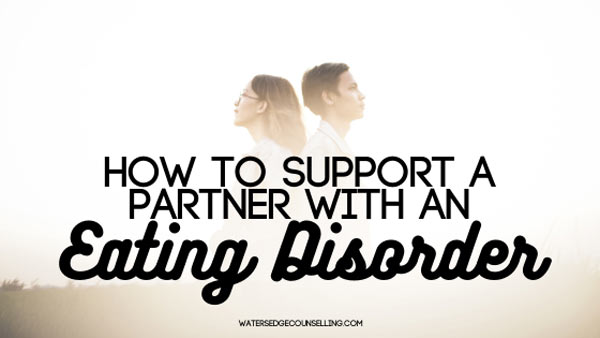
When you love someone, all you want to do is keep them safe and happy. You want to protect them from every harm, and when they’re hurting, you want to make it better. But if your partner has an eating disorder, that very natural instinct to protect and rescue can do more harm than good.
The reality is that when your partner has an eating disorder, it’s imperative to resist the temptation to fall into the parenting or the rescuer role. This is key to your partner’s recovery, the integrity of your relationship, and the preservation of your well-being.
To be sure though, drawing and maintaining healthy boundaries is far easier said than done. But it is possible.
Be a Partner, Not a Parent
When your loved one is battling an eating disorder, you must establish clear boundaries and resist the temptation to intervene too much in their treatment and recovery. Remember that your role is to be a supportive and loving partner, not a parent.
Ultimately, you cannot make your partner well. You cannot even make them want to get well. You can encourage them in their mental health journey. You can love them without judgment. More often than not, that means your job is going to involve listening and loving. However, sometimes it’s going to mean taking a step back.
If you find your own mental or physical health is compromised, you may even need to walk away, even if only temporarily, until your partner is ready to take action and responsibility for their recovery.
Understanding the Disorder
Although eating disorder victims have a choice in their road to recovery, they do not have a choice in their suffering. These diseases can be deadly, and recovery takes a tremendous amount of willpower.
More often than not, they are the result of significant past trauma or related mental illnesses, such as anxiety or obsessive-compulsive disorders (OCD). Your partner may have little or no control over their eating behaviors. This means that to be a good partner, you must resist the temptation to become the food police. Without professional help, all the encouragement, cajoling, pleading, and fussing in the world won’t accomplish anything other than putting an additional strain on your relationship.
However, just because you shouldn’t try to control your partner’s eating behavior doesn’t mean you can’t help. It all begins with understanding the nature of the disorder and triggers that incite or worsen the symptoms. Armed with this knowledge, you and your partner, perhaps with the assistance of their therapist, can work together to devise healthy and effective coping strategies.
Learning to Cope
One of the best ways to cope together through this battle of an eating disorder is to eliminate stress. For example, dysfunctional eating behaviors are often instigated, or exacerbated, by stress. So working with your loved one to develop stress management strategies that the two of you can pursue together can be tremendously beneficial for their recovery. Daily meditation, regular exercise, and mindfulness can go far in reducing stress. Even something as simple as focused breathing can help control stress and anxiety in potentially triggering situations.
Additionally, virtual therapy sessions can be a tremendous help by providing your loved one with on-demand access to a mental healthcare provider. In this era of social distancing, the ability to receive care from home can be a tremendous comfort, reassuring your loved one that no matter what the pandemic may bring, they will still have access to the care they need when they need it.
Recognizing the Signs
Although finding ways to cope together is a good first step, you may find that your partner is resistant to recovery, especially when admitting to their experiences. In the most acute phases of the illness, you might find that your partner is even unable or unwilling to open up about their condition. They may feel ashamed of their behaviors or afraid of your reaction.
In addition to creating a safe space for your partner to express their thoughts and feelings without fear of judgment or recrimination, other thoughtful gestures can help them feel more secure and, most importantly, less stressed in the relationship.
For example, one of the most common physical effects of eating disorders is the development of certain gastrointestinal disorders, such as gastroesophageal reflux disease (GERD). Thoughtful acts that’ll help alleviate the symptoms, such as propping up the head of the bed, can help them feel better and more understood.
But it’s not only important to understand the signs of distress in your partner. You also need to be able to recognize the signs in yourself. Supporting your partner means practicing self-care and taking care of your mental health as well. Otherwise, you, your partner, and your relationship will only suffer and sicken. Online support groups are just one of the ways you can better support yourself and your partner. They can be a tremendous comfort, while individual therapy and counseling can help you combat feelings of guilt and self-blame.
The Takeaway
Loving someone who has an eating disorder is not always easy, especially when your first instinct is to protect and rescue the one you love. But just because you can’t make the illness go away doesn’t mean you can’t love and support them through their recovery. The key, though, is to maintain boundaries, understand your partner’s needs, and ensure that you, too, are well taken care of.
Do your partner struggle with an eating disorder, or have a complicated relationship with food and body image? Contact Colleen on 0434 337 245 or Duncan on 0434 331 243 for a FREE 10 minute consultation on how we can best help you or book online now.
Leave a Reply